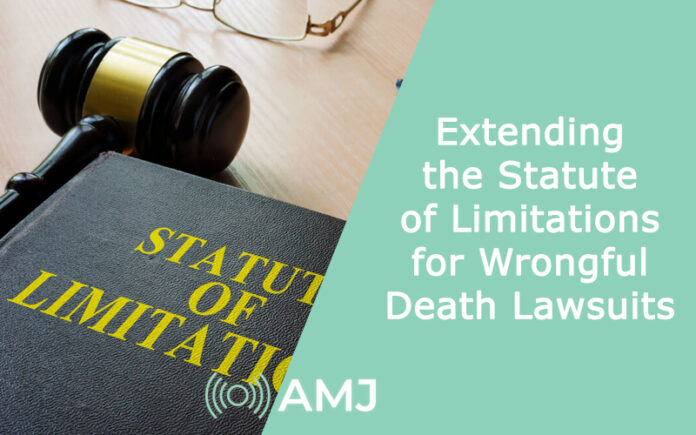Losing a loved one is a traumatic experience that can profoundly impact surviving family members. When that loss results from another party’s negligence or intentional wrongdoing, the surviving family members may have a legal claim for damages in the form of a wrongful death lawsuit. However, in many cases, the statute of limitations for filing such a lawsuit may expire before the family can seek justice.
This article will explore the challenges the statute of limitation says for wrongful death lawsuits and make a case for extending the time limit.
Contents
Understanding the Statute of Limitations
The statute of limitations is a legal principle that sets a time limit for a lawsuit. This time limit varies depending on the type of case and the jurisdiction in which it is filed. In the case of wrongful death lawsuits, the statute of limitations typically begins to run from the date of the victim’s death. In many states, the time limit for filing such a lawsuit is two or three years.
Challenges Presented by the Current Statute of Limitations
For many families who have lost a loved one, the two or three-year time limit for filing a wrongful death lawsuit can be a significant challenge. Sometimes, the family may not even realize they have a legal claim until after the statute of limitations has expired. For example, suppose a person dies due to exposure to toxic substances. In that case, it may take years for the family to discover the cause of death and the potential liability of the responsible parties.
In other cases, the family may be dealing with the emotional aftermath of the loss and may need more energy or resources to pursue legal action within the time limit. This is true in cases where the responsible party is a powerful corporation or government agency, which may have significant resources to fight the lawsuit.
The Consequences
When the statute of limitations for wrongful death lawsuits is too short, it can have severe consequences for families who have suffered a loss. In some cases, the responsible party may be able to avoid liability simply because the family did not file a lawsuit within the required time frame. This can create a sense of injustice and leave the family without recourse for their loss.
Furthermore, a short statute of limitations can undermine the deterrent effect of the legal system. When potential wrongdoers know that there is a limited time frame within which they can be held accountable for their actions, they may be more likely to take risks or engage in negligent behavior. This can put other public members at risk and create a cycle of unchecked harm.
Extending the Statute of Limitations
Given the challenges presented by the current statute of limitations for wrongful death lawsuits, there is a strong case for extending the time limit. There are many reasons why this would be beneficial.
First, extending the time limit would give families more time to grieve and process their loss before focusing on legal action. This can be especially crucial in cases where the death was unexpected or traumatic.
Second, extending the time limit would give families more time to gather evidence and build their lawsuits. In cases where the responsible party is a powerful corporation or government agency, it can take a significant amount of time and resources to make a strong case. Extending the time limit would level the playing field and give families a fair chance to pursue justice.
Third, extending would ensure potential wrongdoers are held accountable for their actions. When there is a longer time frame within which a lawsuit can be filed, it sends a message to potential wrongdoers that they will be held accountable for their actions, no matter how much time has passed since the incident. This can have a deterrent effect and encourage better behavior in the future.
Conclusion
It is essential to understand what the statute of limitation says and ensure that the lawsuit is filed within the prescribed time frame. Extending the statute of limitations for wrongful death lawsuits is necessary to ensure families can pursue justice and hold responsible parties accountable for their actions. A longer time frame would give families the time and resources to gather proof and create their case while also sending a strong message to potential wrongdoers that they will be held accountable for their actions, no matter how much time has passed. Ultimately, this would create a more just and equitable legal system.












![Index of Money Heist [Season 1, 2, 3 & 4 – All Episodes, Cast and Plot] Index of Money Heist](https://www.asiamediajournal.com/wp-content/uploads/2021/05/Index-of-Money-Heist-3-100x70.jpg)